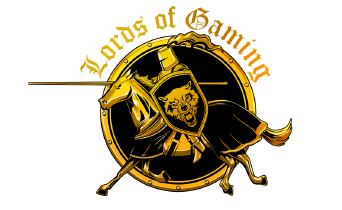Outriders is in a unique spot in its interpretation of the genre in which it is playing in. On one hand, the game is reminiscent of the numerous looter-shooters and other service-based games out there in the market. On the other, the game’s marketing is doubling down that it is a “complete” game and avoiding the service game moniker. One thing is for certain, Outriders has learned the lessons of the industry.
Generations Leave their Mark

Each video game generation brings out a new genre or sub-genre to the market. The SEGA Genesis/MegaDrive popularized beat ‘em ups like Streets of Rage. While the OG Xbox/PlayStation 2/Nintendo GameCube generation successfully cemented first-person shooters in the console space. The eighth-generation console is no different. It brought about the looter shooters and more broadly, the Games as a Service (GAAS) model to the video game industry.
To GAAS or Not to GAAS

Many argued which game ushered in the GAAS. Some claim that that Diablo 3 first introduced seasons to the masses in 2014. While other point out World of Warcraft as the godfather of service games. Regardless, these types of games boomed in popularity because they provided unique offerings.
First, they offered immense depth. Players can really sink their teeth and experiment with different classes, weapons, character builds that alter their experience in a game. A Barbarian in Diablo 3 plays differently from a Necromancer. Second, and more importantly, GAAS provides reasons to keep playing or return. Especially if the game implements seasons and passes that reward players who grind it out. But that also leaves the other side of the coin.
Negative Connotation

There is a reason why GAAS became sought-after by many publishers and developers. It is because of their capacity for monetization. Microtransactions are commonly found within GAAS. They come in a variety of different forms. This includes season passes, currencies, character/weapon skins, virtual card packs, in-game pets, etc… Some developers are also notorious for introducing fear of missing out mechanics to keep players reeled in.
Related: Outriders Will Feature Free Next Generation Upgrades And Crossplay
These mechanics include rare skins that are only available for a limited period of time or even whole missions or blocks of content that go away between seasons. This ensures that the most devoted gamers will stick around. After all, completionism is a quality that many gamers have in common. And nothing begs to be had more than a limited skin or rare item/equipment.
Other GAAS titles try to entice gamers to come back through different means. Long-running service-based game Warframe understands this concept and often entices returning players with massive updates and new features. However, not all service games make the cut.
Rough Launches

Gamers have seen many titles overpromise and underdeliver in the past. Most recently, Anthem tried to go the GAAS route but ultimately failed. EA decided to cut any additional content for the game and it will remain a cautionary tale for the industry. However, some titles launched rough, but the developers stuck to it to turn things around. Titles like Final Fantasy XIV, Rainbow Six Siege, and No Man’s Sky come to mind and are prospering as a result. This is where Outriders comes into the fray.
Outriders’ Unique Position
Outriders developer, People Can Fly, must have seen all of these developments in the industry and heeded their lessons. They saw how over-promising ahead of a launch can be disastrous. They noted that gamers can be diligent and complete content within a few days that take weeks or months to produce. That is one reason why Outriders is cautious to label itself as a service game. Another reason is that it provides flexibility.
Flexibility in its Messaging

Instead, People Can Fly said they will take a wait-and-see approach. They will likely gauge user engagement and decide whether to produce additional Outriders content. Its inclusion into Xbox Game Pass on day one is an interesting strategic decision that will likely increase engagement. In addition, the game’s marketing continuously claimed that Outriders is a “complete” game with a 30–40-hour campaign with some end-game content in the form of expeditions.
The game’s marketing is carefully managing the expectations of its fans with this deliberate messaging. It shows flexibility and provides space should the developers decide to expand on the game. The same is being applied to its microtransactions as well.
They said the game will be free of microtransactions for the most part. Those who pre-ordered the game will receive the Hell’s Rangers Content Pack as a bonus. But you can also choose to purchase the pack if you did not pre-order the game.
Outriders’ overly cautious marketing approach shows that it learned lessons of previous games’ failure. By managing expectations and taking a wait-and-see approach they are providing themselves with flexibility. Outriders is promising a “full game” from the get-go, but it is still in a position to introduce additional content later on. Given that the game’s demo was well received and updated a couple of times, I expect that Outriders will receive timely support and likely get more content down the road.


